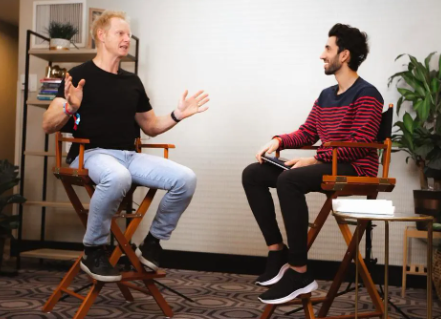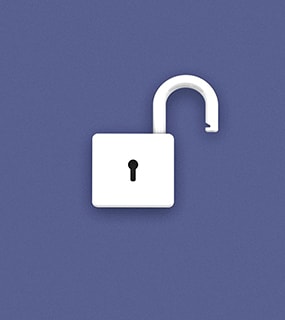As a business owner or professional, it’s tempting to take your knowledge and expertise for granted.
After all, this is what you do day in and day out, so it must be simple, right?
Actually NO! Your expertise is a skill honed by years of immersion and practice, and regardless of what field you’re in, that expertise has value. And you can sell it.
So, how can you translate your unique knowledge and skill into a viable product that can be sold? And is there an audience out there for the expertise you have to offer?
Well, more often than not, the answer to the latter question is, absolutely YES and chances are that the audience will value your insight immensely; they just need you to make it available to them.
So here’s an insight into how you can seize the opportunity, take the bull by the horns, and monetize your expertise to reach and empower your audience to do what you do.
In this article, you’ll learn:
- How to overcome imposter syndrome
- What kinds of expertise can be monetized
- Questions to ask yourself before monetizing your knowledge
- How knowledge can be monetized
- Tips to translate your expertise into a Knowledge Commerce business
Overcoming imposter syndrome (I am not good enough)
Doesn’t everyone know how to do that? Or, I am no expert, is something we hear when course creators are starting their journey and it is natural to feel this way.
However you are the expert, you have spent years crafting your skills, learned from your mistakes, and now know the easy way to do things. This is what makes you the expert and makes your expertise in demand.
Often the things we do as part of everyday business seem simple.
Whether you’re a lawyer who sets up corporations, a journalist who wrangles words into shape, or an artisan baker who creates pitch-perfect pastizzi, the skills that you take for granted could well have value to someone else.
Especially those starting out in their journey to learn new skills.
You’ve forged a path and achieved success, and it is this experience that makes you good enough and the expert to teach someone else.
Too often, we fail to recognize that the skills we have are unique, and just because they come easily to you, they may not be second nature to someone else.
There might be others out there sharing similar experiences and expertise, but they won’t do it the way you do, and the way your future students will learn from you.
Herein lies the unique opportunity to share what comes to you naturally, to bank on the knowledge, training, and experience you have, and monetize your expertise.
After all, all journeys are different but we can start by teaching, and monetizing our expertise by teaching:
- How did you get to where you are?
- How do you do what you do?
- How did you overcome obstacles people might come across?
- Tips, Shortcuts, and How To’s others should know
Tips:
- Start by noting down all the questions you get asked often. If there is a repetition, chances are there is knowledge in there you can monetize.
- Jot down the frustrations you have when people don’t know XYZ or they ask you XYZ these are pain points you can teach around.
Read more on how to overcome imposter syndrome here.
What kinds of expertise can be monetized?
When it comes to the question of what kinds of expertise can be monetized, the answer might surprise you. Basically, it’s anything that you have insight into that is likely to be of interest (and value) to someone else.
Naturally, the larger the potential audience, the greater the likely monetization, but to make it more obvious, let’s break it down.
Areas to consider include:
Hobbies
Whether it’s bird watching, badge making, or creating beeswax sandwich wraps, hobbies are prime fodder when it comes to sharing tips, hints, how-to’s, and more.
Courtesy of marketplaces like Etsy and global events like COVID-19, hobbies are very big business.
How big? Well, Statista offers a bit of an insight, with their latest data finding the global hobby market was worth US$456 billion in 2019, but is expected to increase to US$545 billion by 2023.
For example, Rolla Skate Club is creating a global movement to empower women. And they’re using roller skates to do it. Carla & Luca want women to be as powerful in their life, community, and business as they are on their roller skates.
Technical skills
Like hobbies, technical expertise is all about sharing the how-to, and is based on the questions your customers actively ask of you, or information they frequently seek.
For example, a public relations expert might share their technical expertise on how to write a winning press release, while a gardening expert might share insight into how to grow bonsais.
Again, it’s about considering topics that frequently pique people’s interest which you have unique insight into.
For example, Steve Dotto built a thriving business on Thinkific – helping Boomers navigate today’s technological wonderland to build meaningful online businesses. He carved out a niche in a competitive space by catering his content to an underserved audience.
Industry/vertical expertise
Industry or vertical expertise can take a broad or narrow approach. It can offer insight into trends emerging within your specific business sector, including data and future predictions. Or, it can really hone in on a theme within your industry/vertical.
For example, Latrina Walden started a successful Facebook group for nurses to support them through their stressful board exams. After an overwhelming response to some of her live Q&As and calls in the comments for more materials, she began selling courses.
Questions to ask yourself when considering monetizing your knowledge
If you’re considering whether your expertise can be monetized, it pays to ask yourself a few simple questions.
These help you determine if there is demand for your expertise and also assist with identifying the types of information that will lend itself to monetization.
Questions include:
- Can I share a unique perspective?
- Do I have ‘insider’ tips?
- Are there questions my customers frequently ask of me or my business?
- Is there something that comes easily to me that others might find complex?
If the answer to any of the above is yes, it then comes down to determining the best method of monetizing your insight.
How knowledge can be monetized
Knowledge and expertise can be monetized in a host of different ways, many of which may be familiar, but some of which might surprise you. These include:
Monetized content
This is the type of written, visual or audio content where you are paid to share your insight or expertise, such as blog posts, youtube videos, paid speaker roles, etc.
Content monetization can involve being paid directly by your content consumers (ie. paid subscriptions or online courses), or paid by advertisers for access to your content consumers (ie. affiliate links or banner ads).
Digital products
Digital products take a whole range of different forms, from e-books to videos and podcasts that people subscribe to. Online courses are another example of digital products that can be sold, but more on that shortly
You are either paid directly for these products or via sponsorship, advertising, or paid links to an external website.
Memberships
Creating a membership site allows you to deliver specialist wisdom to a select group of people who pay for access to that content and the community built around it.
That might involve sending out newsletters or restricting access to a specific part of your website so only paying members can view those articles or information.
Community
Of course, you can also monetize your expertise by creating an online community, whether that’s a physical community or a virtual one which might feature guest lectures, shared information, and collective wisdom. If your students are professionals, you might want to consider creating a professional learning community. With Thinkific, you can charge for access to your private community. Learn more about creating your own private community here.
Online courses
Selling online courses is a great way of taking your insight and sharing it in bite-sized pieces that people can digest in their own time.
Online courses allow you to advertise your expertise and have people sign up (and pay) to be guided through a process. And with Thinkific, they are easier to create than you might expect.
There’s a handy download to help you work through the knowledge and ways to monetize it on the Course Creators Circle.
Launch your online learning product for free
Use Thinkific to create, market, and sell online courses, communities, and memberships — all from a single platform.

How to translate your expertise into a knowledge commerce business that makes money
OK, so you’ve identified you have the expertise to share and it’s likely to offer value to others.
Now what steps do you need to monetize it, and how do you know which medium works best for you?
Be crystal clear on what you offer
The first step to understanding your product and its audience is to clearly define the expertise you have to offer.
In other words, complete this sentence – “I use my expertise to help people ______”
Akin to an elevator pitch, this single sentence helps define both your insight and your audience.
For example, ‘I use my expertise to help people find media opportunities’.
That means potential areas of expertise and monetization would include:
- How to write a press release
- Tips on public relations strategy; and
- Interview tips
In this instance, it also means my audience is likely to be business owners and individuals looking to raise their media profiles.
Where is your audience?
So now you’ve defined your expertise and your audience, where is this audience likely to seek information?
Is it likely to be via a podcast, blog posts, how-to videos, online courses? The answer here might be deceptive, it could actually be a couple of those channels.
What’s your point of difference?
At this stage, it’s also really important to define how your expert offering is different from other people’s. Is it easier to understand? Is it proven or trusted? Is it because you’re famous for what you do? Are you a pioneer, or have you stood the test of time?
Basically, answering this is all about the why… Why would someone seek insight from you rather than anyone else?
And pro-tip – the answer to this question needs to be quantifiable. It cannot just be because you feel you are ‘better” than someone else.
How do you solve a problem?
Anything that is sought after (aka has value) tends to solve a problem by enabling a transformation; From point A (their current reality), to Point B (their desired future)
The problem you are solving is something you need to define and it can be established by asking yourself: What problem does my expertise solve?
Answering this question helps clarify exactly what information you should offer as well as presenting a reason for people to part with their money.
Going off the example above, which was ‘I use my expertise to help people find media opportunities’, it then follows that the problem being solved is gaining media attention.
After all, in a noisy world, it’s hard to be noticed by journalists, unless you have the right strategy.
More importantly, people pay big bucks to hire PR teams, but that’s not necessarily something small businesses or individuals can afford.
Start building your information bank
Now comes the fun part, with your expertise, problem-solving ability, and audience in mind, it’s time to start building your information bank, and some of you might already have embarked on this journey.
For example, in your business blog posts, videos, and social media posts, you might already have a bank of content that is relative to your audience.
If so, great! Because now you have the opportunity to gather this collective content and to start building something bigger like a YouTube channel, e-book, speaker’s profile, or online course.
Use your age to your advantage
Here’s a tip from ex-YouTube employee turned YouTuber Jon Youshaei about how to translate your career into better content.
“Social media isn’t just a young person’s game. Your age can be a huge advantage when it comes to creating content,” Youshaei said.
In his interview with 57 year-old Jordan Matter, one of the oldest YouTubers with over 10 million subscribers, he explained to Jon, “I had a career before YouTube. I had experience. I had expertise. All I had to do was figure out a way to make it entertaining.”

Matter spent years as a professional photographer and filmmaker. When it came time for him to start his YouTube channel in 2011, he already had a world of knowledge to draw from.
For more practical tips from Jon Youshaei, check out his new Insider Accelerator where he’ll mentor you and share his best tips from working inside YouTube and Instagram for 8 years.
The final takeaway
There’s a good chance the expertise you utilize each and every day has value and distilling this knowledge to monetize it offers a host of benefits.
At the least, it might add an additional review stream to your business, but if the demand and audience are large enough you could actually that knowledge into a stand-alone business.
In the interim, it helps establish your credentials as an expert, while sharing your insight with a wider audience.
Ready to take the plunge? You can create and sell an online course for free on Thinkific.
Launch your online learning product for free
Use Thinkific to create, market, and sell online courses, communities, and memberships — all from a single platform.

Download the Monetizing your knowledge worksheet for more help aligning your expertise with a business that you can start.
This blog was originally published in April 2021, it’s since been updated in February 2024.

